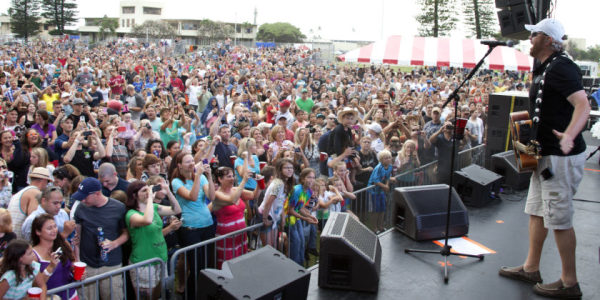

When I joined the Veteran Tickets Foundation in 2016, I became part of an organization run by veterans to serve veterans. VetTix is a national nonprofit that provides discounted event tickets to the military community, ranging from major sporting events to concerts, in the hopes of encouraging positive reintegration and strengthening family bonds.
With over 166,000 “VetTixer” testimonials sent into our website, I’ve been lucky enough to observe firsthand the impact that these opportunities for community engagement have had on transitioning service members, military spouses and their families.
Recently, more than 44,000 active-duty military personnel and veterans completed our recent national annual survey on veteran reintegration, and the results reminded us just how important resources like ours can be for the military community. According to our results, the hardest aspects of reintegration are readjusting to civilian life, continuing relationships and mentally re-adjusting.
Here are five key takeaways from our survey, which is available in full online:
Community support
Twenty-four percent of respondents reported that they did not perceive their community to be supportive of veterans. Even if one’s surrounding community does in fact support the military community, it is crucial for veterans to feel welcome and not alienated when transitioning back to civilian life. More than 93% reported that attending public events offered through VetTix positively improved their perception of community support.
Diversified experiences
By providing event tickets at a low-cost, military families have easier access to the camaraderie with their peers like they experienced in the military along with an enriched sense of community. This is invaluable not just for transitioning service members, but military spouses who are PCSing or a military families looking to try something new. But while these are important aspects of reintegration, they are difficult for the DoD or VA to mandate for veterans. Hence, private nonprofits like VetTix.
Making fun affordable
The VA strongly recommends social activities, planned family time and date nights for successful civilian reintegration. But our survey showed that an eye-popping 91% percent of veterans said they couldn’t afford to attend community events without financial help, while 63% said they only had $100 or less each month for social activities (the estimated cost for a family of four to attend a sporting event or concert is more than $500.).
With the help of military-focused organizations, providing financial help for community reintegration allows a military family to attend an event and be fully present with their loved ones, without the financial burden they would otherwise face.
DoD photo

Strengthened family and community relationships
Providing access to events that strengthen and promote quality time with friends and family members is key to positive veteran reintegration. Ninety-five percent of respondents who have had opportunity to attend community events report that they are more engaged and communicate more with the people they take to events. Attending an event gives service members and veterans a chance to decompress from everyday life and spend time with loved ones.
Improved well-being and physical health
Some 44% of survey respondents have had an official mental health diagnosis, and 65% feel they have experienced depression or anxiety relating to their military service. It is crucial for military and non-military community organizations to understand the importance of mental and physical well-being for service members, veterans and their families, but it’s also essential to realize how critical community and family support is to that well being.
Transitioning service members and veterans oftentimes experience difficulties while reintegrating into civilian life. Positive community resources provide a means for spending quality time with family and friends, and in turn, rebuild and strengthen social networks.